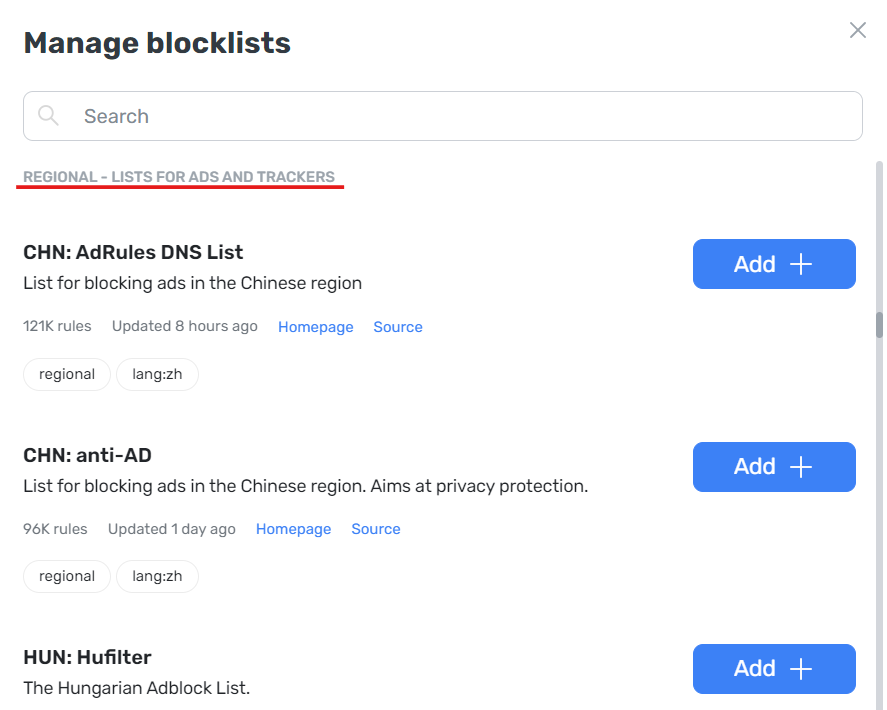Seznamy zakázaných
Jaké jsou seznamy zakázaných
Seznamy zakázaných jsou sady pravidel v textovém formátu, které AdGuard DNS používá k filtrování reklam a obsahu, který by mohl ohrozit vaše soukromí. Obecně se filtr skládá z pravidel s podobným zaměřením. Mohou existovat například pravidla pro jazyky webových stránek (například filtry pro němčinu nebo ruštinu) nebo pravidla chránící před phishingovými stránkami (například seznam blokovaných phishingových adres URL). Tato pravidla můžete snadno povolit nebo zakázat jako skupinu.
Proč jsou užitečné
Seznamy zakázaných jsou navrženy pro flexibilní přizpůsobení pravidel filtrování. Můžete například chtít zablokovat reklamní domény v určité jazykové oblasti nebo se zbavit sledovacích či reklamních domén. Vyberte požadované seznamy zakázaných a upravte filtrování podle svých představ.
Jak aktivovat seznamy zakázaných v AdGuard DNS
Aktivace seznamů zakázaných:
- Otevřete ovládací panel.
- Přejděte do sekce Servery.
- Vyberte požadovaný server.
- Klikněte na Seznamy zakázaných.
Typy seznamů zakázaných
Obecné
Skupina filtrů, která obsahuje seznamy pro blokování reklam a sledovacích domén.

Regionální
Skupina filtrů sestávající z regionálních seznamů pro blokování domén v určitých jazycích.

Zabezpečení
Skupina filtrů obsahující pravidla pro blokování podvodných stránek a phishingových domén.

Další
Seznamy zakázaných s různými pravidly blokování od vývojářů třetích stran.

Přidávání filtrů
Pokud si přejete rozšířit seznam filtrů AdGuard DNS, můžete podat žádost o jejich přidání do příslušné sekce Hostlistsregistry na GitHubu.
Podání žádosti:
- Přejděte na výše uvedený odkaz (možná se budete muset zaregistrovat na GitHubu).
- Klikněte na New issue.
- Klikněte na Blocklist request a vyplňte formulář.
- Po vyplnění formuláře klikněte na Submit new issue.
Pokud pravidla blokování vašeho filtru nejsou duplicitní s existujícími seznamy, bude přidán do repozitáře.
Uživatelská pravidla
Můžete si také vytvořit vlastní pravidla blokování. Více informací naleznete v článku Uživatelská pravidla.